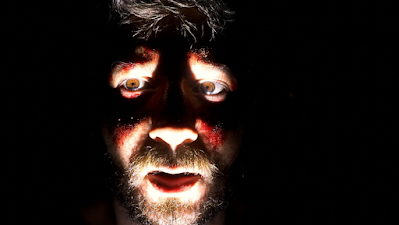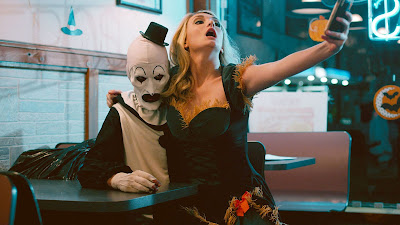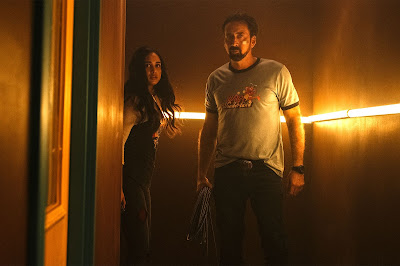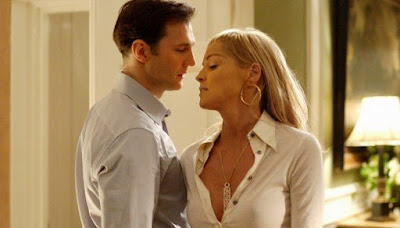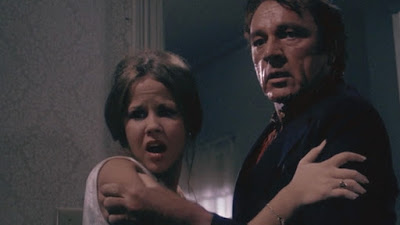Saturday, July 15, 2023
The Outwaters / * (2022)
Tuesday, January 31, 2023
Mandy / * (2018)
 In theory, a movie like “Mandy” would be right up the same alley of brazen gorefests that have been known to captivate my morbid sense of voyeurism. Ripped from the familiar cloth as any number of audacious horror stories set in the lurid world of pulp fiction, the picture makes a bold promise from its very first frame: all that is about to happen will be unlike anything we have witnessed on screen – or, at the bare minimum, fresh enough to draw comparisons to Dario Argento and Mario Bava, the architects of the decadent excess we associate with Giallo. Indeed, countless critics and colleagues have hailed the picture as a triumph of its medium, a surrealistic experience where the framework of the familiar revenge formula is twisted into a fever dream of contemplative symbolism and thematic excess. And who wouldn’t want that, especially nowadays as the genre appears caught somewhere between the extremes of vague nuance and gratuitous overkill?
In theory, a movie like “Mandy” would be right up the same alley of brazen gorefests that have been known to captivate my morbid sense of voyeurism. Ripped from the familiar cloth as any number of audacious horror stories set in the lurid world of pulp fiction, the picture makes a bold promise from its very first frame: all that is about to happen will be unlike anything we have witnessed on screen – or, at the bare minimum, fresh enough to draw comparisons to Dario Argento and Mario Bava, the architects of the decadent excess we associate with Giallo. Indeed, countless critics and colleagues have hailed the picture as a triumph of its medium, a surrealistic experience where the framework of the familiar revenge formula is twisted into a fever dream of contemplative symbolism and thematic excess. And who wouldn’t want that, especially nowadays as the genre appears caught somewhere between the extremes of vague nuance and gratuitous overkill?

